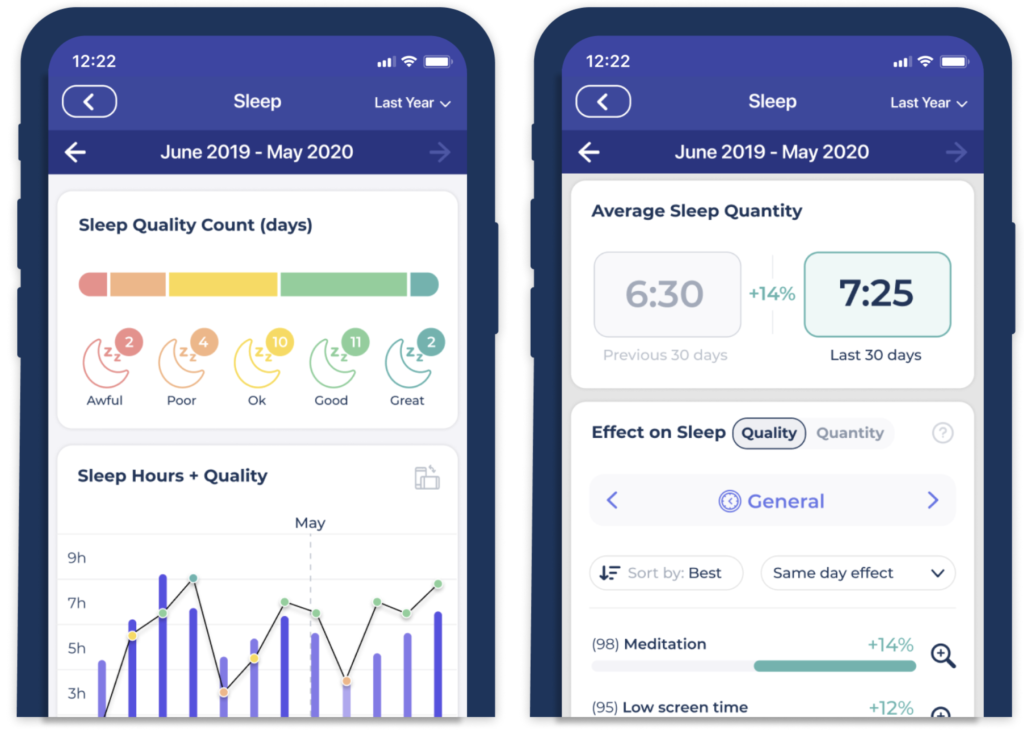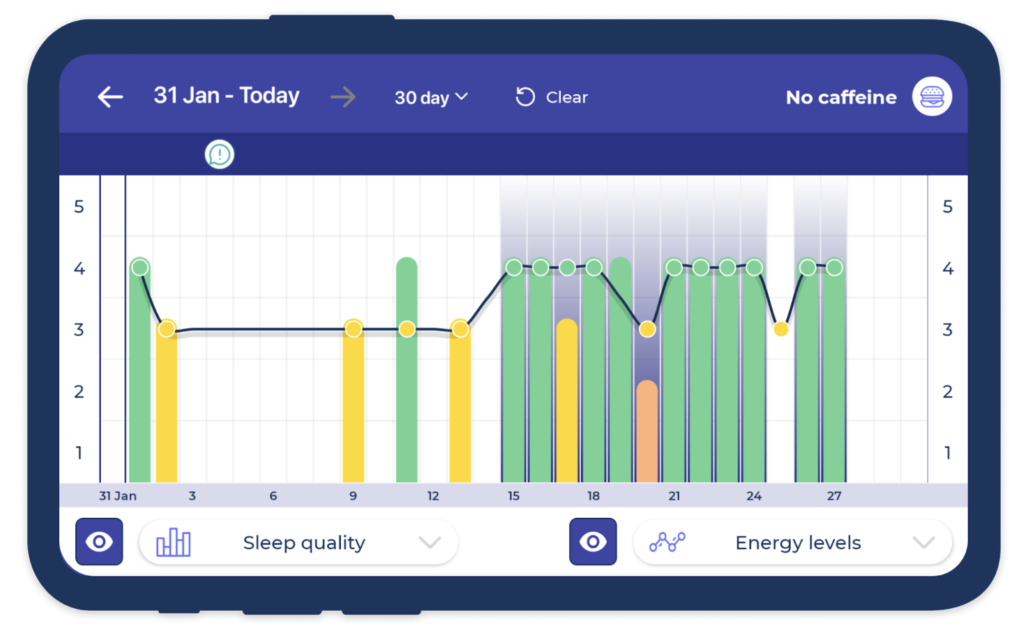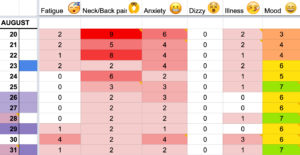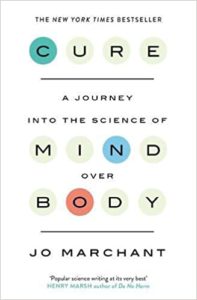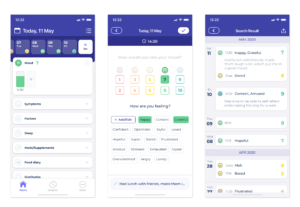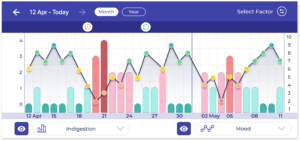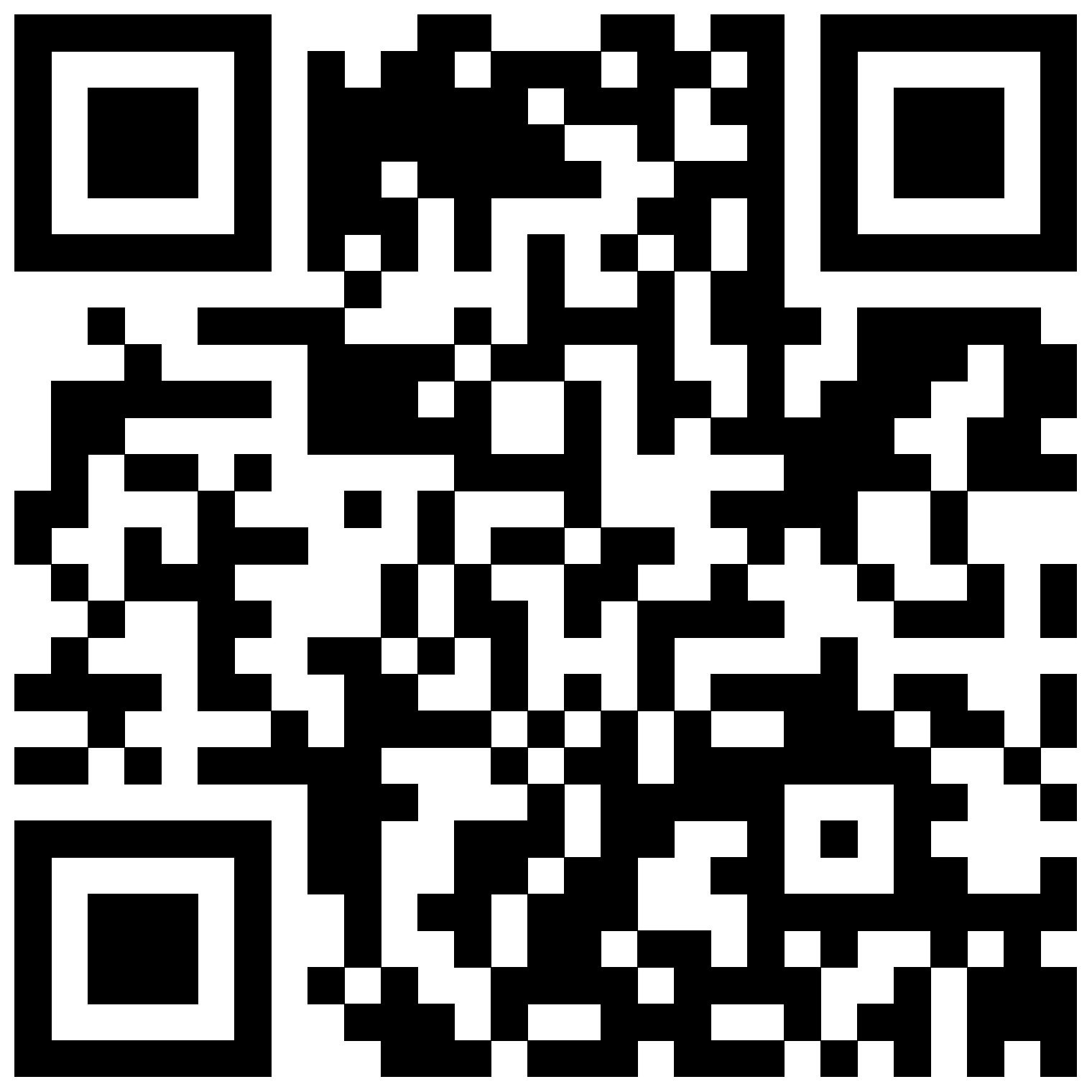Bearable Premium gives you deeper level insights into your Moods, Symptoms, Sleep, and Factors. But what does this really mean?
In this post, we’ll outline some of the core features of Bearable Premium and how they can help you to get a clearer picture of your health and wellbeing.
#1. Make plans for bad days with the Average Mood, Symptom, and Sleep Score Per Day Report.
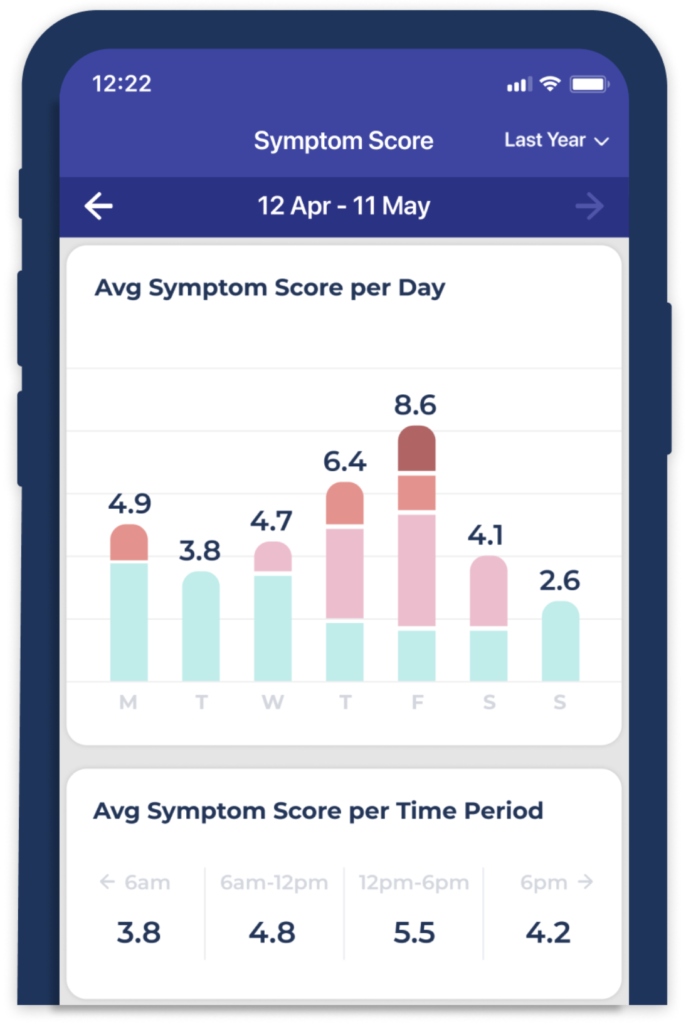
This report shows you an average score for your Mood, Symptom, or Sleep for each day of the week.
You can use this to determine if there are days of the week when you’re more likely to have flare-ups, a lower mood, or more trouble sleeping.
Many Bearable users take this information and make plans to do something to counteract the likelihood of having lower scores on those days.
For Mood and Symptoms, there are also time-period reports that let you see the time of day you’re more likely to have an average lower or higher score.
This report can help you to understand if there are specific routines, behaviors, or habits that might be impacting you at specific times of the day.
For example, you might find that by skipping breakfast in the morning you’re more likely to have a low mood score until midday.
#2. Learn what’s triggering your Symptoms and Track them with the Effect on Symptoms Report.

Want to understand what might be making your anxiety attacks more frequent? Have a theory about something that might be triggering your low mood?
In the Symptoms Breakdown section, you can view the Effect on Symptom report. It lets you compare the correlation between your individual Symptoms and the Factors that might be leading to higher or lower symptoms scores.
For example, if you’re tracking your appointments with a therapist you can see what impact they’re actually having on the different Symptoms of your mental health condition.
You can even look at how the Symptom might be affected by the Factor over different periods of time. The same day effect button lets you choose to see what impact the factors had on the same day, the next day, and up to 7 days after the factor occurred.
This report lets you begin to understand more about the impact of treatments, habits, people, and activities on the symptoms of your health conditions.
To get even more out of this report you can track custom Factors and Symptoms that are unique to your health and lifestyle.
If you have a hunch that a treatment isn’t having the desired outcome OR that there’s a specific habit that might be triggering a symptom, then this is the report for you.
#3. Learn what’s Affecting your Sleep and the knock-on effect this has on your Symptoms in the Advanced Sleep Insights Report.
Sleep is one of the most important things for our health. Yet, for many people with health conditions, it can also be elusive.
This report can help you to get a bigger picture of your sleep habits and how to take back control over them.
Using the Effect on Sleep report in the Advanced Sleep Insights Dashboard, you can determine the Factors that positively and negatively impact your Sleep Quality and your Sleep Quantity.
For example, you might find that certain medications or supplements hinder your Sleep Quantity. Or, that days when you spend less time on social media have a positive impact on Sleep Sleep Quality.
You can use these Insights to attempt to change the frequency of Factors that have an impact on your sleep.
We can dig even deeper on this using the Sleep Factor Count (days) report at the bottom of the Advanced Sleep Insights Dashboard. When you click one of your Sleep Factors like Woke Still Tired, you can see what impact this has had on your Symptoms.
For Example, I can see that Woke Still Tired had a +65% impact on higher (worse) Symptom scores. Meaning that waking up still tired was bad for my overall health. Specifically, I can see that it makes me 45% more likely to display symptoms of some of my other conditions.
You can also gauge if this is becoming better or worse over time by changing the view from week, to calendar month, or last year.
So, why should you consider subscribing to Bearable Premium?
Ultimately, it’s going to give you more options to explore your health data which in-turn will give you a much clearer and more holistic picture of your health.
Having a clear and holistic picture of your health is useful if you’re trying to understand all of the moving parts and what might be going wrong.
Bearable Premium also takes a lot of guesswork out of connecting the dots between Symptoms and Factors. This means you can begin to have a positive impact on your wellbeing and start to feel like you are reclaiming a sense of control.
It also gives you a much more holistic set of health data to share with medical professionals to allow them to really get to the root causes of your issues, rather than just treating your symptoms.
As an app built by people with chronic conditions, Bearable aims to help people to:
- Spot patterns and correlations between things that may be affecting your health
- Help you and your doctor come to an accurate diagnosis more quickly.
- Better manage their health conditions and reclaim a greater sense of control.
The features of Bearable Premium are built to expedite these outcomes and hopefully make them even more accurate over time.
***
Some more info about features and pricing.
If there are features that don’t exist yet and you’d like to see them before subscribing to premium; let us know at support@bearable.app or on our public roadmap.
If you’re interested in learning more about our pricing and principles, there’s a whole blog post about it here.
Photo Credit.
Paper photo created by freepik – www.freepik.com


